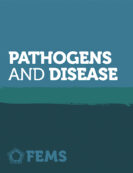Collaborating Organization: JISEM

¡Hola! JISEM (Grupo de Jóvenes Investigadores de la Sociedad Española de Microbiología) is the Group of Early Career Scientists of the Spanish Society for Microbiology (SEM). It was launched in 2013 by a small group of PhD students with the goal of enhancing and promoting the activities of the Early Career Scientists within SEM. Since then, it has gained popularity within the Society thanks to its diverse activities, which include:
- Being represented in different SEM Boards of Trustees
- Participating in General SEM Congress and biennial meetings of the Teaching & Dissemination SEM Group, organising sessions and round tables on diverse topics
- Publishing a dedicated section, “MicroJoven”, in SEM’s monthly newsletter “NoticiaSEM” (https://www.semicrobiologia.org/secciones/publicaciones/noticias). These publications include interviews, information on calls and summaries of conferences or courses, among others
- Preparing interviews to senior Spanish researchers from Spain, which can be followed in the YouTube channel of JISEM
- Taking part in the selection process and organization of the Introductory Course to Microbiology Research, a competitive program organized every summer by SEM for final year undergraduate students
- Engaging with the newcomers to the Society and participating in the administration related to their enrollment
- Elaborating a catalogue of all the Master’s degrees related to Microbiology in Spanish Universities
- Publishing job offers, grants and relevant articles in their social networks
- Collaborating with FEMS Opportunity Board in the dissemination of job offers
JISEM is always open to enthusiastic Early Career Scientists aiming to collaborate. You can do so by contacting them by email (jovenesinvestigadoressem@gmail.com) or through their Facebook profile (https://www.facebook.com/JovenesSEM).
All but one of the FEMS journals are now fully open access (OA), with one journal, FEMS Microbiology Letters remaining a subscription journal with free-to-publish and OA options. Open access is key to supporting the FEMS mission of disseminating high quality research as widely as possible: when high quality, peer reviewed sound science is open access, anyone, anywhere in the world with an internet connection, can read it.







